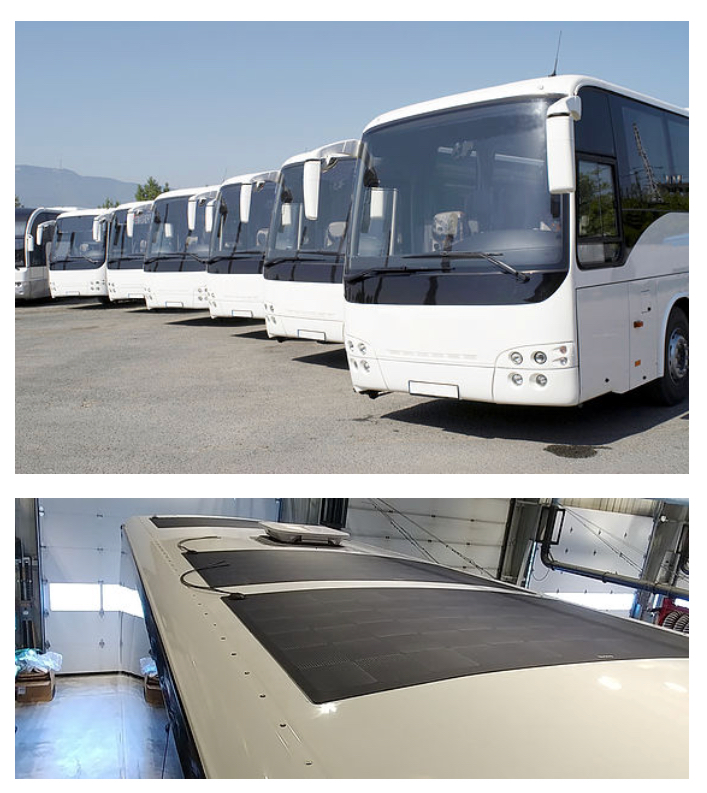
Solar solution for the transportation sector (screengrab from Merlin Solar website)
Buses that harvest solar energy using Silicon Valley-designed but Philippine-manufactured solar panels may soon ply Metro Manila and other key Asian thoroughfares.
The Ayala group’s AC Industrials—which recently acquired San Jose, California-based solar technology company Merlin Solar—is setting up a manufacturing facility at Integrated Micro-Electronics Inc.’s hub in Laguna Technopark.
Olaf Gresens, Merlin Solar president, told reporters at the sidelines of IMI’s stockholders meeting in Laguna on Friday that the company was getting ready for mass production later this year. The hub will have the capacity to produce solar panels that could generate about 100 megawatts a year.
“The solar panels are very unique and different, not like the standard solar panels that you use for ground mount or rooftop applications. These are highly flexible very light panels used for transportation and IOT (internet of things) applications. We are producing the panel here as well as getting this ready for the market in the Philippines,” Gresens said.
Merlin also expects to export the solar panels to other Southeast Asian countries and selected Asian countries like Japan.
Transportation is one of the prospective applications of Merlin’s solar panels. These could be buses, trucks, SUVs (sports utility vehicles) or utility vehicles.
The solar panels can be applied on buses and connected to an auxiliary airconditioning system. To date, most of the buses in the Philippines have mechanical aircon system driven by the engine. Such system cannot be solar-powered.
“What we do is have a secondary aircon system installed that has its own battery, that gets charged from rooftop and we’re expecting that you can run multiple hours of airconditioning while the buses are, for instance, parked in the stations,” Gresens said.
This is not meant to replace the standard air-conditioning of the bus, Gresens said. P2P (point-to-point) buses that are typically parked for 15 to 30 minutes could use such solar panels.
For its other uses, Merlin is looking at aerospace, military and portable type of applications. It is collaborating with IMI on potential projects.
The solar panels are also deemed suitable for specialty rooftop applications. For buildings with glass roof, natural daylight comes in but this also heats up the interior and requires better cooling system. “You can’t put normal panel on the glass because of the weight but our panels can be applied on a stick-and-peel process and can be glued into a flat surface,” he said.
To date, Merlin manufactures the interconnect grid component of the panels in Thailand. It makes the solar panels in its headquarters in California and through a subcontractor in India. The Philippine facility will scale up its production capability.
“Philippine operation is unique in the sense that it will be the most automated facility of panel-making in all three sites once it’s completed,” he said.
The solar panel technology developed by Merlin Solar is deemed disruptive as it combines the best of traditional and alternative technology.
“The standard solar panels are basically silicon wafers but since they are fragile and brittle, they are in an elaborate frame structure where you have glass which is very heavy, but it protects the wafers very well. The alternative is a very flexible film type of solar panel called Thin Film. They are very light but they are very receptive to moisture,” Gresens said.